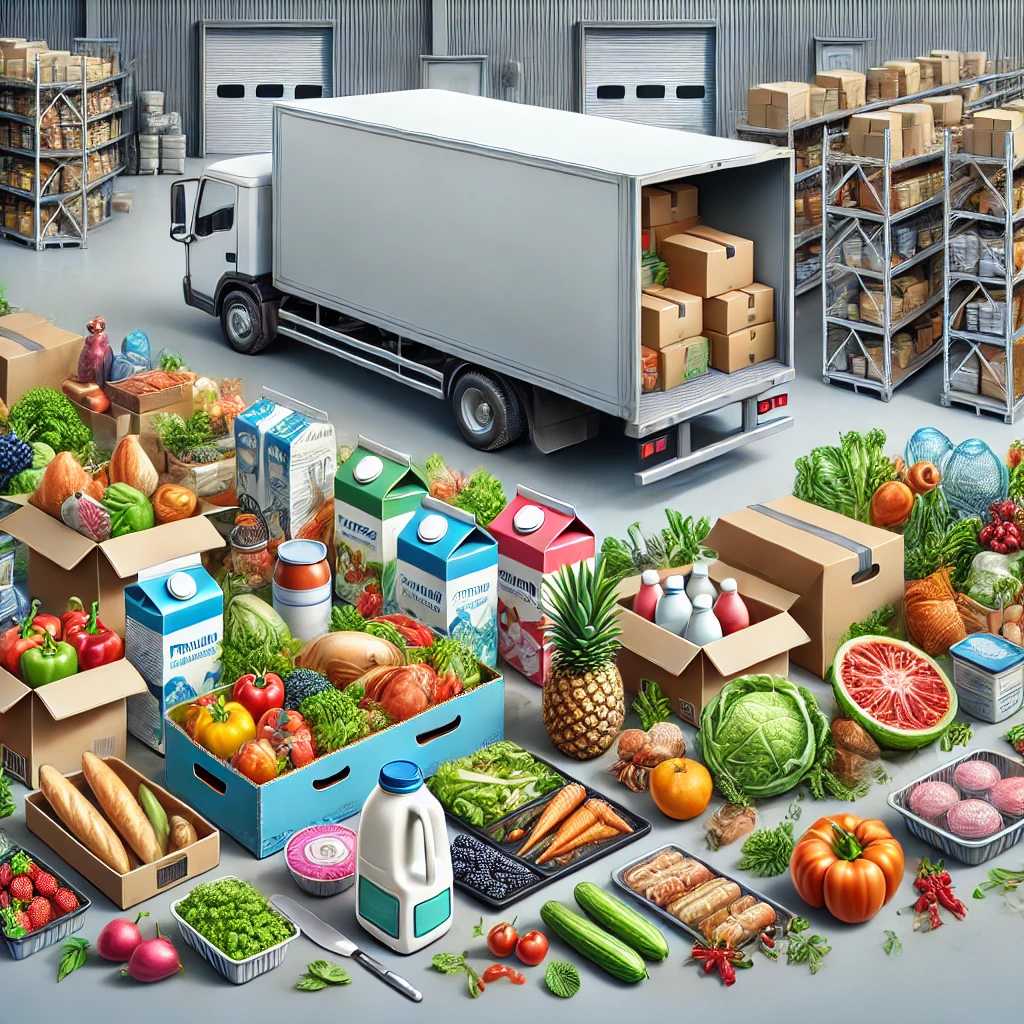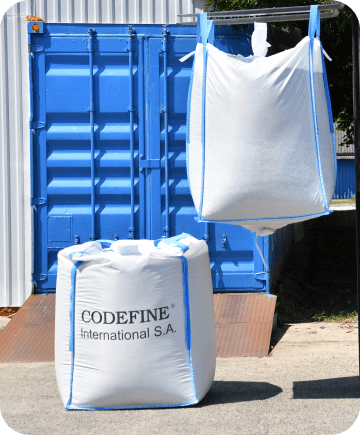Home » Posts Page » Blog » Products and Materials » The Role of Packaging When Transporting Food Items Off-Site

Packaging plays an important role in ensuring food is safeguarded against environmental factors in transit. The right packaging can extend the shelf life of perishable goods while protecting more delicate items from damage. As well as helping guarantee freshness, packaging protects food from contamination. All of these result in less waste and healthy profit margins.
Don’t assume you can use any type of packaging to transport food. When dealing in bulk, you’ll need to invest in specialized packaging to guarantee food quality and ensure adherence to food safety standards.
When operating a food production or processing operation at scale, extra care needs to be taken to avoid contamination and protect against damage. Only then can strict food safety requirements be met. Specialized packaging helps.
Maintaining freshness is a key consideration, even when transporting food short distances. When it comes to longer haul journeys, packaging is central to protecting food quality. Packaging protects delicate items like soft fruits against things like bruising, while breathable containers ensure optimal air circulation, helping avoid spoilage.
Strict food safety standards need to be observed when transporting food in bulk. To guarantee compliance, you’ll need to use certified packaging that’s fit for purpose.
Not all types of food packaging are created equal, with different materials offering varying levels of protection. Below are some of the most common types of food-grade packaging you’re likely to encounter.
Food-grade FIBC bags are packaging that’s been carefully designed to pack, store, and transport perishables and food items. Food-grade bags can be used to store and transport everything from raw ingredients to processed products, ensuring optimal freshness and protection against contamination. In order for an FIBC bag to be certified as food-grade, it has to undergo strict testing to ensure they adhere to strict health and safety standards.
Many perishable goods need to be kept refrigerated or frozen during transportation. However, keeping these goods within a safe temperature range can be difficult with conventional packaging. Rather than risk food spoiling, insulated and temperature-controlled packaging should be utilized. As well as protecting against pests and damage, insulated packaging offers essential thermal protection during transit.
If you’re looking for more reliable ways to transport edible items, food-grade plastic containers and bags are a good choice. From small polypropylene bags to container liners, you’ll find a wide range of plastic options for safely transporting food. Do you want to operate more sustainably? Look for containers made from biodegradable materials to reduce your carbon footprint.
Freshness is a key concern when transporting food over long distances. Fortunately, vacuum-sealed packaging offers a convenient way to protect edibles and safeguard freshness, with everything from vacuum packaging to larger sealed containers available.

While transporting food items safely is fairly straightforward, special care has to be taken to ensure they are transported safely. For starters, you’ll need to ensure you’re using the right type of containers. Insulated containers are ideal for maintaining optimal temperatures, while leak-proof packaging can help prevent spillage and damage. It’s also important to separate foods prior to packing and transportation. For example, raw foods need to be kept separate from ready-to-eat items, while raw foods should never be stacked above ready-to-eat foods.
Selecting the right type of container is only one aspect of safe food transportation. You’ll also need to ensure you’re using the right type of vehicle. Refrigerated vehicles are ideal for transporting all types of food, while temperature-controlled transit may be required for more temperature-sensitive items. Using more efficient routes is also recommended if you want to reduce travel time and protect against fluctuations in temperature. This can help compensate for delays caused by busy traffic conditions and other unforeseen events.
It’s particularly important to consider hygiene and quality control standards when selecting packaging. When choosing food-safe packaging, look for solutions that are made from 100% virgin materials. What’s more, food-grade packaging should offer protection against pests and offer excellent ventilation for breathability. Health and safety regulations also need to be observed by your personnel when handling food items during packing, with proper hygiene equipment worn during the process.
Searching for the right food packaging solution for your logistics operation? To help you make the right choice, you’ll want to bear the following in mind when selecting suitable packaging.
You’ll also need to consider the kinds of food items you’re transporting. Perishable items with a relatively short shelf life, such as fresh fruit and vegetables, require packaging with excellent breathability and pest protection. Durability and impermeability are also important when storing and transporting dry goods, while frozen foods will need to be transported in sufficiently insulated packaging. Additionally, things like monitors may need to be installed to guarantee goods remain at optimal temperatures.
Consider how long a journey is going to take before selecting food packaging. More robust packaging with temperature control features may be needed to protect food during longer journeys.
Regular compliance is a key concern when transporting food. Vehicles used to transport food must meet particular standards, while temperature records also need to be monitored and recorded.
Looking for affordable and reliable food-grade packaging? At Codefine, you’ll find plenty of options to safeguard food when transporting it off-site. All of our food-grade packaging is made from 100% virgin polypropylene, ensuring complete compliance with food safety standards. All of our packaging products are exclusively manufactured, ensuring food is protected against mold, bacteria, and moisture. What’s more, our patented Codefine Super Dustproof (CSD) 3 bags are specially designed to store and transport super-fine powders and sensitive products.
Explore our full range of food-grade packaging online today. Alternatively, get in touch with the team to discuss your requirements in more detail.